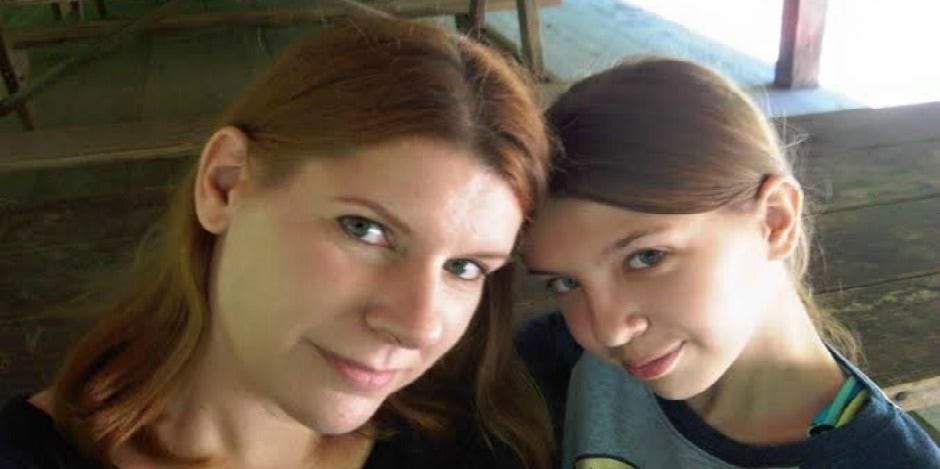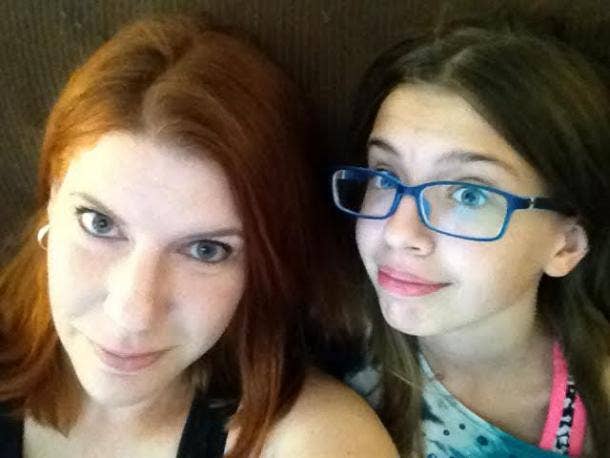
I realized something was going on beyond a simple bug: My child was troubled.
By Victoria Sheehan — Written on Jul 28, 2016

Mental illness is never a walk in the park but after more than forty years with myself, I've learned to tread confidently through its harsh terrain. Most of the time I'm fine. Sometimes I'm decidedly UN-fine, but I've gotten good at recognizing this early and taking action.
I'm neither proud nor ashamed of my conditions, which range from a hypersensitive fear of microscopic pathogens to uncharacteristic apathy and despair. You get what you get and you don't get upset. I've made peace with my weird.
Then one day, my 9-year-old daughter got sick and stayed sick for several weeks. It was winter. It happens. She eventually bounced back and fell ill again. These were stomach things. Unexplained pains. The doctor recommended we consult a well-respected pediatric gastroenterologist.

Stool samples came back negative. Blood tests came back negative. The barium swallow (that was fun) was clear.
Then the week before her scheduled endoscopy, I got an email from her teacher saying my daughter may have taken some things that didn't belong to her: erasers, pencils, things she didn't need.
"It's probably just a misunderstanding," she wrote, but I feared otherwise. My daughter denied everything but a deep excavation of her room proved she had taken some of my belongings, and had also been hoarding food.
At that moment I realized something was going on beyond a simple bug. My child was troubled and she was suffering in secret.
And that's when I panicked. Finding out there's nothing physically wrong with you when there's clearly something wrong with you is one of the scariest experiences to have, and I'd been there many times before. Food poisoning that wasn't. Loss of appetite with no cause. Pains and sweats and jitters. And all of it coming from a traitorous organ: my own brain. But this was worse because it was my daughter's brain now, and I felt like it was all my fault.
The doctors wanted to keep searching for answers but I was certain I'd already found them. I began the tedious process of trying to find a good therapist match for my daughter, and when she refused to open up to anyone, I tried to find opportunities for her to express herself creatively and work out her anxieties physically.
I talked to her honestly about living with mental illness, and assured her that while it's occasionally awful, it's always manageable, and that her life would be as spectacular as anyone else's.
Three years later, my daughter is thriving. With the help of drawing, yoga, rock climbing, Girl Scouts and boy bands, she has found her way and she's happy. She hasn't had a stomachache in years.
Her room is still a disaster, but nothing out of the ordinary. Once she was able to name her demons, they lost most of their power. She now knows herself well enough to recognize her panic attacks and depressive spells. She knows to get fresh air, go for walks, listen to music.
She knows to talk to someone. She talks to me, because I'm no longer a failure for passing on my complicated genes, but an authority on how to accept and handle them.
A meaningful, memorable life takes strength and courage, and no one fights as fiercely as those of us with internal enemies. We are champions every day we get out of bed or walk out the door. We are independent, skilled mechanics who handle our own breaks. We know that nothing comes easy, which makes the gentle moments more beautiful.
Related Stories From YourTango:

We are empathic because we've been there, and kind to others because we've learned to be kind to ourselves. At our lowest, we are also at our most optimistic because we have to trust that it will pass.
I tell my daughter all of these things when she has a rough day and she, in turn, tells me when I have a rough day. And in this way, we have both made peace with our weird.
